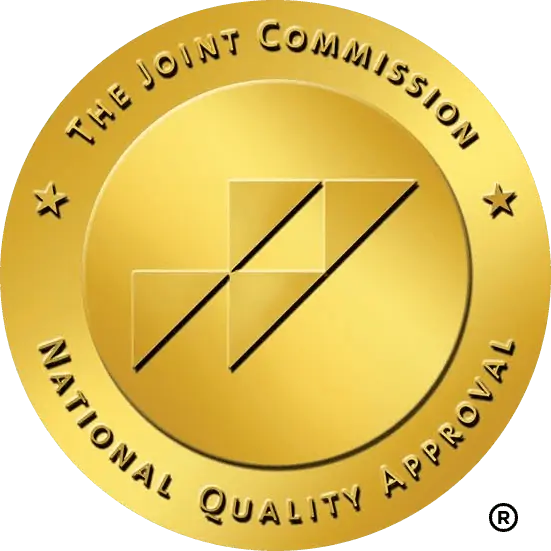Eating Disorders
As the parent of a teenage boy or girl suffering from an eating disorder, knowing how to empathize and understand your child can go a long ways in terms of helping them through this harrowing time in their young lives. As any behavioral expert will tell you, knowledge coupled with early intervention is the key to helping a child overcome a severe, psychological disorder.
Here at Turning Winds, we have created the following article to remind worried and concerned parents that, although an eating disorder is a severe mental illness, it is also a condition that is highly treatable. With the ever-evolving advancements in psychiatric medicine, there is a plethora of treatments and resources that are tailor-made to effectively treat your child’s specific psychological issues. So take solace in the fact that with proper therapeutic treatment, your son or daughter is almost certain to be cured of their illness. And like every mental health issue, the earlier you treat an eating disorder, the more likely your child will be able to overcome their condition and go on to live a long, fruitful and blessed life.
But in order for you moms and dads to truly help your child through their therapeutic journey, it’s important to first learn how to genuinely empathize with your child’s complex psychological condition. Furthermore, by gaining a deeper understanding of your child’s suffering, you become all the more equipped to truly help them fight their highly stigmatized and alienating disorder, while at the same time gaining insight into their damaged psyche.
Consequently, by providing your child with the empathetic support that is rooted in intimate knowledge of their highly complex and volatile condition, your child will have a formidable ally they so desperately need in fighting an internal struggle, they themselves, don’t fully understand.
What Can Cause An Eating Disorder?
Like any severe, mental health issue, psychiatric experts say that the development of an eating disorder is typically caused by a variety of potential factors. Despite commonly held misconceptions that suggest eating disorders are purely social and societal in nature potential factors that can cause eating disorders are numerous and vary wildly. In the following, we will discuss the most common potential factors that can lead to the development of extreme and self-destructive eating behaviors.
Genetics
One of these widely unknown, albeit quite common, factors include genetics. While this may come to the surprise of many, behavioral research indicates that extreme eating behaviors can be passed down from parent to child.
To prove this, The National Center for Biotechnology Information (NCBI) conducted a behavioral study that involved adopted twins who were separated at birth. In spite of being separated after being born and sharing no contact with one another, researchers discovered that if one adopted twin developed an eating disorder, their sibling was 50% more likely to suffer from one as well. Through their efforts, the NCBI’s findings seem to all but prove that a significant portion of teenage, self-destructive eating habits may, in fact, be inborn — thus adding a whole new dimension to a highly stigmatized disorder which was once widely considered to be a matter of behavioral choice rather than a genetically predisposed condition.
Personality Traits
Another common factor includes a teenager’s personality traits, such as neuroticism, perfectionism, and impulsivity. These three personality traits — especially if combined – are shown to greatly increase a teenager’s likelihood of developing an eating disorder as a means to take control, gain self-worth, or self-harm themselves in response to negative emotional issues.
Of course, teens are more susceptible to impulsive and immature behaviors, which makes them all the more prone to vulnerabilities that, if combined with an askew perception of their physical appearance, could potentially cause a teen to take drastic action – such as choosing to act on bulimic or anorexic behaviors.
Cultural Pressure To Be Thin
Our society’s obsession with physical appearance is perhaps the most well-known and culturally recognized out of all of the potential, eating disorder developing factors. As to why this cultural factor is more widely recognized than any other can perhaps be explained by it’s obvious and gratuitous, societal impact. That is to say, these pressures, which include the obsession to strive for physical perfection that borders on the realm of impractical and unrealistic, are engrained in our children’s minds at a disturbingly young age.
Unfortunately, our culture has inadvertently (or purposefully, depending on whom you ask) caused millions of teens to develop a low self-worth and an abundance of insecurity issues when it comes to all things concerning their appearance.
Unfortunately for our nation’s highly impressionable youth, this negative, cultural impact is virtually unavoidable. No matter where a teenage boy or girl looks, it’s as if they are overtly instructed on what they should look like, how they should act, and most importantly, what they need to dedicate themselves to avoid looking like at all costs – especially when it comes to their weight and waistline.
The overwhelming pressure to look skinny, of course, becomes a major concern to many of our nation’s youths who above all else, desire to be accepted, if not desired by a society that favors superficialities over anything beneath the surface of their skin. Tragically, our petty, cultural obsession with outside appearances has led to countless adolescents (and yes, this includes teenage males as well) to turn to drastic, unhealthy measures in response to the drastic pressure they, themselves, feel on second-by-second, day-to-day basis. With this in mind, it’s quite easy to understand the reasons behind these types of teen’s extreme, masochistic efforts to strive for what they perceive to be “physically attractive.”
Does Your Teen Need Therapeutic Restoration? Turning Winds Can Help!
Nestled in the beautiful mountains of Montana, Turning Winds is a residential treatment center (RTC) where teens ages 13 to 18, battling with substance abuse, mental illness or other behavioral problems come and stay for a period of time in order to receive help from the top minds and practices in the country.








